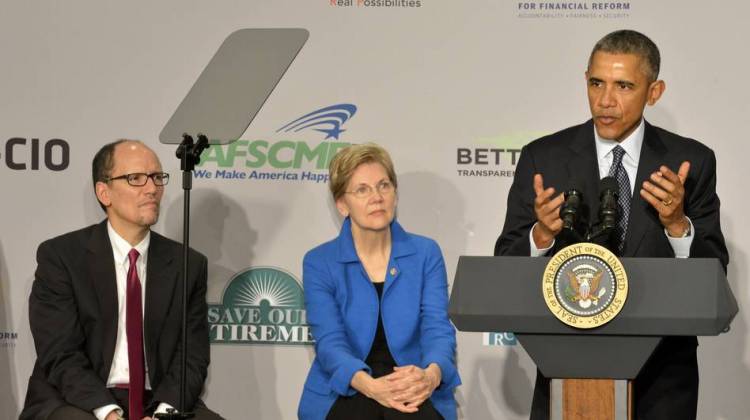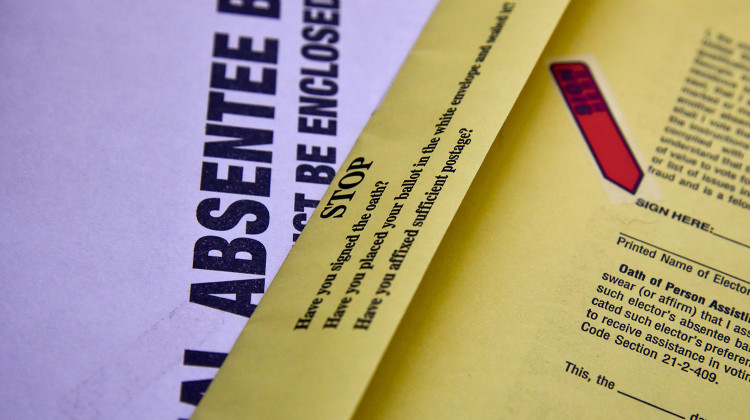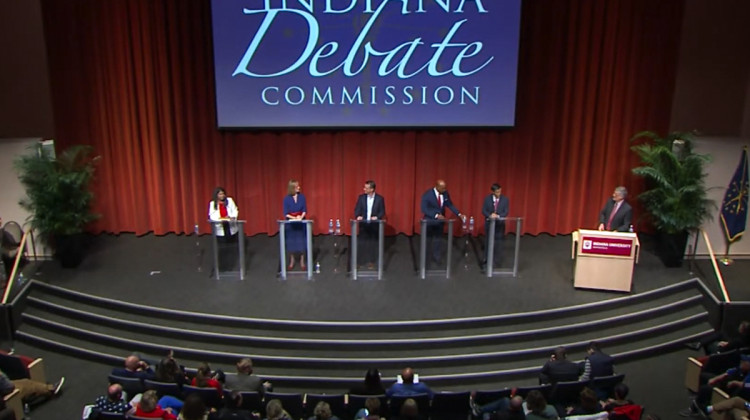The Obama administration is creating new protections for Americans saving and investing for retirement, but industry groups say the new rules could hurt the very people the president says he wants to help
If you're building a retirement nest egg, big fees are the dangerous predators looking to feast on it. The White House says too many financial advisers get hidden kickbacks or sales incentives to steer responsible Americans toward bad retirement investments with low returns and high fees.
"If your business model rests on taking advantage of bilking hard-working Americans out of their retirement money, then you shouldn't be in business," Obama said Monday. "That's pretty straightforward."
The White House is directing the U.S. Department of Labor to craft new rules that require retirement advisers to put consumers' best interests ahead of their financial gain. But some industry groups are sounding the alarm.
"A sledgehammer is not needed where a regular hammer would fix the problem," the Financial Services Roundtable said in a statement.
Tim Pawlenty, the group's president and CEO, has another metaphor at the ready.
"There's always a few bad apples," says Pawlenty, the former Minnesota governor. "We would encourage focusing on bad apples and removing them, instead of tipping over and smashing the whole apple cart."
Pawlenty says that he hasn't seen details of the new rules yet, but that if the rules create burdensome regulation, financial planners might decide it's not worth working with people of modest means.
"We don't want to get to a point where the red tape and bureaucracy and cost freezes lower-income people from being able to take advantage of financial planning advice," he says.
But not all industry groups are so worried.
"There's a lot of overheated rhetoric," says Kevin Keller, the CEO of the Certified Financial Planner Board, a voluntary standards group that certifies financial planners.
He says he supports what the White House is trying to do. The new rules would create what's called a "fiduciary standard," which is a requirement to act in a clients' best interest.
Some industry groups claim that the fiduciary standard will reduce the availability of financial advice for middle-class Americans, but Keller says that's not true. Still, everything depends on the actual language in the rules.
Kent Smetters, a Wharton School economist who served in the George W. Bush administration, says he supports the move by the White House. But he's also frustrated by existing regulations.
For example, he says, stock brokers already are held to a fiduciary standard, but have found loopholes, so brokers can still get commissions for steering people into bad investments with high fees.
"Literally, this is legal," Smetters says. "I could say to you, 'Chris, I have your best interests in mind, I think you should invest in this fund x, y, z.'
"That first half of the sentence, I really had your best interests in mind," he adds. "The second half of the sentence, I take off my fiduciary hat, and you don't know any better because after all you're going there for is advice. You don't have a clue. It's just screwing over middle-class households."
9(MDEwMDc1MzM3MDEzNDczOTA0MDc1MzViMQ001))
 DONATE
DONATE










 View More Programs
View More Programs


 Support WFYI. We can't do it without you.
Support WFYI. We can't do it without you.